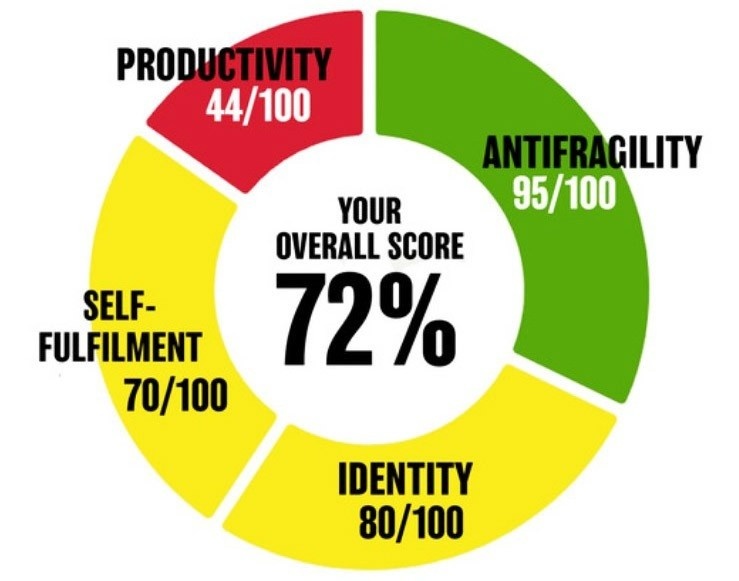SUMMARY
- In life you’re always negotiating whether you like it or not – whether you’re negotiating with your children to do their chores, negotiating with friends about where to go for dinner, or negotiating with our boss to get that promotion.
- But most people go about negotiation all wrong and leave so much on the table because they don’t understand the principles behind the process. In this episode I’ll teach you the principles of negotiation that have helped me in my business and life so you can get more of what you want and achieve your goals faster.
- Most people go into a negotiation without knowing what they really want. But if you’re not crystal clear on what you’re shooting for, you’ll help the other side achieve their goals without achieving yours and end up in a much worse position than where you started.
- I always start off a negotiation by stating my intent: “I want this deal to be a good deal for both of us.” This might seem small, but I want the other person to know that I’m committed to helping them achieve their goals as well as mine. Because the truth is that a good deal is only good when both sides think it is.
- The other thing is that you have to focus on your interests, not your position. So sometimes people will get into a bit of a deadlock in the negotiation and say something along the lines of “Sorry, we don’t do that because it’s policy.” Don’t make this mistake because it doesn’t create any space for a solution to arise.
- The other thing that I like to do is to always think about things from a third party perspective. Typically in a negotiation, we think of us and another person and that can be quite adversarial. I like to think of three people in the room – us, the other person, and the problem that we’re solving.
- Finally we need to remember to pause if needed. When you notice those emotions flaring, it’s the perfect opportunity to create space. Whether it’s a pause, a deep breath, walk out of the room, go for a walk or reconvene later in the day, you do not want the emotional part of your brain for either you or the person you’re negotiating with to begin to take over because that’s when emotion comes in.
TRANSCRIPT
Negotiating is one of those key things in business or life that we’re actually always doing; whether we realize it or not; whether we’re negotiating with our children to get them to do their chores; negotiating with friends, to try to arrive at a common destination; maybe that we want to go on vacation together or negotiating with our boss trying to get that promotion; or perhaps a higher salary or compensation level or involvement in the project that we desire or negotiating with our tea; trying to get them to do what we hope to do as a group; whatever it is that we’re trying to achieve. But most people go about negotiation all wrong. They actually don’t even know the principles of negotiation. And today I want to teach you some of the key principles to help you negotiate like a champion. Hi, my name is Eric Partaker and I help CEOs, entrepreneurs and individuals close that gap between who they are and who they’d like to be – not just on the work front, but also on the health and the home or the relationship fronts.
Negotiation for me used to be something that frankly I didn’t really think much about. So I’d go into a meeting. I had something that I wanted to achieve. The other side had something that they wanted to achieve and ended up being a bit of a train wreck of a conversation. I actually remember. I joined Skype in it’s very early days. There were about 30 people in the small office in London. We grew to around 500 people. We sold to eBay during that time for about $4 billion. And I was starting out as a new person in the business development team before working my way up through the company. And I remember one of my first business development meetings with a potential partner. It was a bit of a train wreck of a conversation. It really didn’t go anywhere. And we ended up essentially walking out of the meeting without having any of the things that we had wanted to achieve, but the other side had achieved basically everything that they wanted.
I remember my colleague who was a bit ahead of me in the company at the time, when he was sort of mentoring me. He said to me, as we left the negotiation, we were on our way back to the office. He just said to me, “So Eric, how do you think that went?” And I knew exactly by what he said, that phrase in that way, that obviously it hadn’t gone well. So today I want to give you a super simple set of tips that you can employ in any negotiations that you’re doing, whether they’re in your business or life. The first thing is number one, you have to know your goal before you’re going into a negotiation. I know that might sound super, super simple, but right from the get-go, or worse, you might just immediately start pursuing or working with the other side to help them achieve their goals.
You actually don’t realize that you’re not achieving your own; or perhaps even get even further distant from your own; or creating the situation where you actually won’t be able to achieve whatever your goals were, in your mind. So really before you walk into that room, or before you step into that discussion with that other party, know what your goal is, what is it that you want to achieve?
Number two, I always like to state my intent when I was with Skype. Someone said to me “a good deal is when both sides think they’re getting a good deal” and that has always stuck in my head. And I think it’s a phenomenal negotiation principle and tactic that you should be using. Right at the start of a negotiation, I state my intent. And I don’t just mean the things that I want. I state the intent that I want to make sure that we arrive at a deal that suits both your interests and our interests. I want to make sure that we arrive at a deal that is a good deal for both of us. Again, sounds super, super simple, and it might feel like something that you can glance over, would just be automatically understood, but it always isn’t understood. And although it may sound like common sense it’s really worthwhile stating that intent and stating that goodwill intention, right from the beginning, it changes the whole dynamic of the conversation.
The other thing is that you have to focus on your interests, not your position. So sometimes people will get into a bit of a deadlock in the negotiation and it might go something along the lines of well, “Sorry, we don’t do that because it’s policy, we don’t do that now”. You certainly shouldn’t ever state that yourself because if you state something like that yourself, where it’s just your position, then you’re certainly going to be inviting the other side to start speaking like that as well. Or you may hear this directly from the other side first: “Sorry, it’s our policy to not agree to this. So you know, there’s nothing we can do”. Don’t let that stop there though. Explore the interests. “Okay. I understand that’s your policy. What is it that you’re trying to protect or what is it that you’re trying to gain with that policy? Help me understand what are your interests here?” Why do you say that? Because you don’t want to get into this situation where it’s just butting heads against each other with this feeling of positions – always try to explore what are the underlying interests and make sure that you’re stating your interests as well.
I’ll give an example with the restaurant chain that I built. We were negotiating a franchise deal, and frankly, we were much smaller than the potential, a friend, a franchise partner. And I made it clear that one of my interests was to make sure that whatever deal that we agreed upon reflected the tremendous brand equity that we had created, with the restaurant brand and that reflected the quality of it. And that was commensurate with the types of deals of other brands out there at the same kind of brand equity quality, or overall quality level for the business. And once I planted that seed, it was then easy later on in negotiation to reference some of the different financial points we are arriving at and compare them against other brands that I thought were admirable or matching to the brand that we had built.
The other thing that I like to do is, number four, always think about things from a third party perspective. And what I mean is that typically in a negotiation, we think of us and another person that can be quite adversarial. I like to think of it as there’s actually three people in the room or three entities, or that there’s a third party in the room. There’s us, the other person, and the problem that we’re solving. And sometimes I’ve even gone so far as to suggest that we sit on the same side of the table so we can attack this problem that we’re both trying to solve in front of us, or at the very least, I never sit directly across from someone in a negotiation. I will always at least have us sitting at the corner, so that we can reference.
And I might even do it visually, even with eye contact and something along the lines of, “Well, that’s interesting. And how else might we solve this issue that we’re trying to solve? How might we satisfy both our interests in this problem that we’re trying to deal with here?”
The other thing that you have to remember with all of this, fifth and final point, is that we need to remember to pause if needed. I remember being in discussion with a potential business partner and the discussion actually ended up becoming quite heated. It was starting to become a little bit emotional, and I suggested that we take a pause and reconvene later in the day. And I actually needed that pause myself to be frank because I was even becoming quite emotional. When you notice those emotions flaring, it’s the exact perfect opportunity to create space. Whether it’s a pause, a deep breath, walk out of the room, go for a walk reconvene later in the day, you do not want the emotional part of your brain for either you or the person you’re negotiating with to begin to take over because that’s when emotion comes in, that’s when irrationality can come in. That’s where our attempt to rationally create a solution to the problem that arrives at both of our interests can suddenly unravel; suddenly we’re arguing from a point of position. Once again, this is my position on the subject. This is your position on the subject, rather than trying to solve for our mutual interests.
Now, there are times of course, when the other person won’t be listening and you’re not really getting anywhere, and I’ll give you one final thing that you can use in a situation like that – you can always reference the other person’s standards. So let’s say for example, that you’re trying to negotiate with a partner – effectively trying to get them to subscribe to a higher level of output or a higher quality of work than you’re currently happy with. And one of the things that you can do is first start the conversation by referencing that the company that they work for, the company that they stand for, is all about quality and high standards. And you would love to make sure that your work together really reflects and echoes those standards. And so you have that segue to a conversation around, “well, what changes might we make?” And that particular situation or discussion will bring the quality of the work up to the level of the company; to the higher level standard that that person works for, or ultimately represents.
Remember when it comes to negotiating, know your goal, state, your intent, focus on interests, not positions, always think of that third party perspective, that same side of the table – you’re trying to solve a problem rather than approach things adversarially between the two of you. Pause if needed and if required. Play to the higher standard that the person or the party represents, either in the form of the ideals of their company or the organization that they work for.




